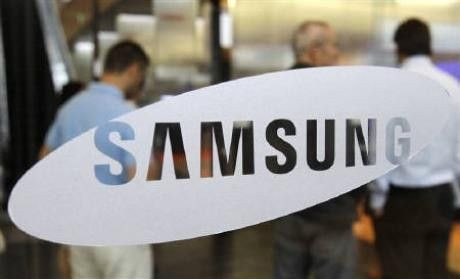Despite its unruly northern neighbor, South Korea is an attractive place to invest

South Korea has been in the news lately for the wrong reasons – namely, the unprovoked attack by North Korean on Yeonpyeong Island that killed two soldiers and two civilians, and raised fears of another full-blown war between the two hostile nations.
However, while North Korea remains a geopolitical concern, South Koreans seem to have largely become “used to” the misbehavior and provocations of their unruly northern neighbors – after all, this has been going on for almost sixty years.
Meanwhile, the South Korean economy keeps humming along at a robust pace.
Korea's economy climbed by 5.8 percent in the second quarter of 2010 (versus a 1.7 percent expansion by the U.S. economy.)
In a conference on Wednesday in mid-town Manhattan, The Korea Trade-Investment Promotion Agency (KOTRA) presented reasons why South Korea makes for an attractive investment candidate for foreigners.
Indeed, essentially in one generation, South Korea has catapulted itself from poor Third World backwater to an exporting economic power and the fifteenth largest economy on the planet.
Boasting a nearly 100 percent literacy rate, low national debt, low inflation and a very low unemployment rate (below 4 percent as of 2009), South Korea’s economy has seen its exports almost double in only six years to $364-billion in 2009, versus imports of $323-billion.
Through the first ten months of 2010, South Korea recorded about $383-billion in exports and $347-billion in imports.
Before the global recession, South Korea’s GDP was expanding at an average annual rate of 5 percent – indeed, almost half of Global Fortune 500 firms have established a business presence in South Korea (245 companies as of 2008).
“Korea is the world's eleventh largest trader with imports and exports accounting for nearly 90 percent of the country's GDP,” KOTRA said.
“Korea ranked tenth in the world in terms of global export market share based on cumulative export from January to April 2009.”
South Korea's major export items include semiconductors, automobiles, wireless communications equipment, ships and petroleum products, crude oil, semiconductors, natural gas, petroleum products comprise major imports.
China, Japan and The U.S. are the country’s largest trading partners.
Since the Asian financial crisis of the late 1990s, the South Korea government enacted several market and structural reforms, including efforts to increase foreign direct investment (FDI) into the country. With respect to FDI, the Seoul government has, among other things, developed free economic zones, provided tax relief and cash grants to foreign companies seeking to establish operations on South Korean soil.
South Korea’s Ministry of Knowledge Economy said Wednesday that accumulated FDI increased 6.6 percent as of the end of November to reach just over $10 billion, due largely to an expanding investor base and increased investment in the service sector.
South Korea has recently signed an amended free-trade agreement (FTA) with the U.S. According to the U.S. International Trade Commission, the pact will increase will expand American exports by at least $10 billion a year. Among the many terms of the revised FTA, the U.S. will phase out its 2.5 percent tariff on imports of Korean cars over five years (the United States exported less than 6,000 vehicles to South Korea last year, while South Korea exported 500,000 to the U.S.)
Also under the FTA, South Korea will reduce its tariff on American cars by half from 8 percent to 4 percent, then eliminate it gradually over five years. Also, American carmakers will be exempted from South Korean safety regulations on a limited number of vehicles each year. In addition, tariffs will be eliminated on over 95 percent of industrial and consumer goods in five years.
Over the past decade, the U.S.’ share of Korea's imports has declined from 21 percent to 9 percent; meanwhile China’s share of imports to Korea has climbed from 7 percent to 18 percent.
While opposition parties in South Korea have criticized President Lee Myung-Bak for agreeing to a pact that they believe favors the U.S. too much, the ruling Grand National Party called the agreement as a win-win for both countries.
It's true that our government made more concessions than in the past deal, said Ahn Hyoung-hwan, spokesman for the party. Although people say the deal benefited U.S.-made cars, it would not deal any big blow to domestic automakers considering the present share of U.S. cars in the South Korean market.”
A recent article in Korea’s Arirang News noted that the FTA is expected to result in the addition of 34,000 new jobs annually for the next ten years, with the service industry receiving the bulk of that figure, followed by manufacturing.
Upon final ratification of the FTA with the U.S., South Korea plans to effect an FTA deal with the European Union next summer.
Finally, regarding the ongoing political strife with North Korea, a recent survey by KOTRA suggested that almost 88 percent of foreign investors and businesses dealing with Korea said that the attack on Yeonpyeong Island by North Korea did not affect their business plans in South Korea.
A KOTRA official in New York commented that most investors looking at South Korea should have a “balanced” view of the geopolitical situation on the peninsula, but added that they will continually “monitor” developments with North Korea,
© Copyright IBTimes 2024. All rights reserved.





















